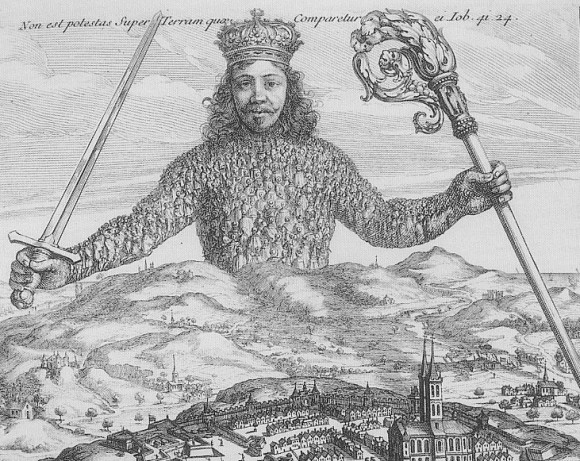
Governments use fear of threats at home and abroad to increase their power and abridge individual freedom. If there is any singular lesson in Antiwar.com’s motto, War is the Health of the State, that is it.
Peter Ludlow, a professor of philosophy at Northwestern University, has a must-read piece in the New York Times Opinion Pages that explores how the state uses “fear to induce the rollback of individual rights” and fortify its hold on power.
The 20th century was littered with wars and ethnic cleansings that were propelled in large measure by fear of a neighboring state or political or ethnic group. Given this obvious truth, one might suppose that modern democratic states, with the lessons of history at hand, would seek to minimize fear — or at least minimize its effect on deliberative decision-making in both foreign and domestic policy.
But today the opposite is frequently true. Even democracies founded in the principles of liberty and the common good often take the path of more authoritarian states. They don’t work to minimize fear, but use it to exert control over the populace and serve the government’s principle aim: consolidating power.
…Philosophers have long noted the utility of fear to the state. Machiavelli notoriously argued that a good leader should induce fear in the populace in order to control the rabble.
Hobbes in “The Leviathan” argued that fear effectively motivates the creation of a social contract in which citizens cede their freedoms to the sovereign. The people understandably want to be safe from harm. The ruler imposes security and order in exchange for the surrender of certain public freedoms.
Of course, this has relevance for one of the hottest issues of the day. Everything about the debate over NSA surveillance is based in fear. Politicians warn that Edward Snowden’s decision to inform the American people of what their government is doing in the shadows helps our enemies and endangers our safety. NSA surveillance that encroaches on Americans’ liberty and privacy is justified, they say, because evil terrorists are out to kill us at every moment in every corner of the world.
We’re essentially supposed to take these arguments on faith, considering no one has been able to produce a single piece of evidence demonstrating Snowden’s leaks endangered our security. Likewise, several federal judges, congressional committees, and independent studies have concluded that there is no evidence that the meta-data program, for instance, has done anything to stop terrorist attacks on the U.S.
As Jay Stanley of the ACLU put it recently, “national security is the justification for our security establishment’s existence and powers, but self-preservation, defense of prerogatives and reputation, and expansion of powers is truly mission number one.”
I have repeatedly cited on this blog the Foreign Affairs piece by Micah Zenko and Michael A. Cohen which argued that while foreign threats from terrorists or rival states have gone way down, threat inflation is everywhere on the rise, with politicians, military leaders, media pundits, and everyone in between warning of unprecedented vulnerability and insecurity in a dangerous and threatening world.
“Warnings about a dangerous world also benefit powerful bureaucratic interests,” they explain. “The specter of looming dangers sustains and justifies the massive budgets of the military and the intelligence agencies, along with the national security infrastructure that exists outside government — defense contractors, lobbying groups, think tanks, and academic departments.”
Fear, and the wars enabled by it, whether they’re quiet or loud, cold or hot, is central to the expansion of government power. As Less Antman, speaking at the 2012 Libertarian Party’s National Convention said, “Drowning people in fear is the key to power.”


